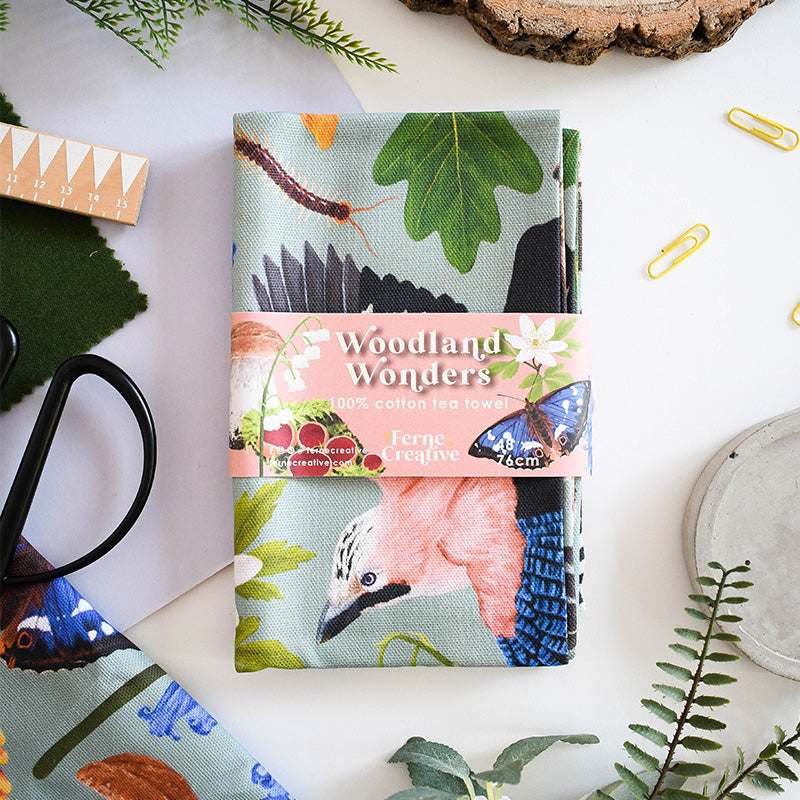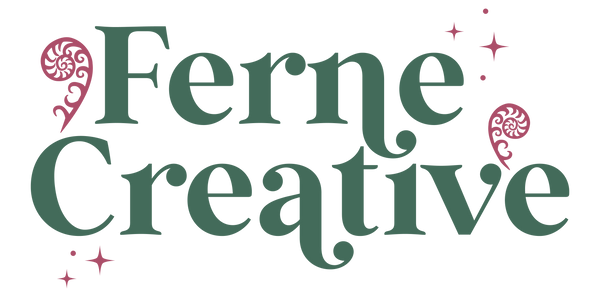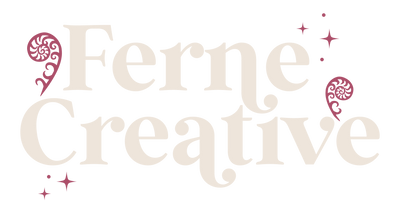
How I'm making my wildlife illustration business more sustainable
In a world where environmental consciousness is more important than ever, I believe businesses have an even bigger responsibility to minimise their ecological footprint, not only for their own impact but also for customers to have the chance to make better choices. As a wildlife illustrator, I've made it my mission to ensure that my passion for art and creating doesn't come at the expense of the planet, but there is always room for improvement. Here's how I'm making my wildlife illustration business more sustainable:

Illustrated tea towels have a paper belly band sealed
together with paper sticker.
Eco-Friendly Packaging
As my business is predominantly online, packaging plays a crucial role in my business to protect delicate artwork in transit, but as an artist, I also want to make it pretty and an experience in itself. To minimise waste and environmental impact, I've switched to using recyclable materials wherever possible. From cardboard boxes that are hand stamped for postage to illustrated paper tape for sealing packages,. Even stickers are packaged in paper envelopes, and when I must use clear bags, I opt for biodegradable cello that breaks down in household waste. While these choices may come at a higher cost, they align with my commitment to reducing single-use plastics and promoting eco-friendly alternatives that my customers do not have to worry about disposing of.

Recycled plastic keyrings are made with materials previously
intended for landfill.
Mindful Material Choices
As an illustrator, the materials I use directly impact both the quality of my artwork and its environmental footprint. While I previously experimented with seed paper for printing thank you cards, I encountered 'challenges' (imagine me throwing my printer out the window) with its thickness and the viability of printing on it without compromising the seeds. I decided to use regular paper for my prints, printed by UK companies. By prioritising functionality and sustainability, I can deliver high-quality artwork without compromising on eco-friendly practices.

Clear Communication
Wooden Coasters have reduced packaging with a card belly
band that has 'Please recycle this card'.
Continuous Improvement
By prioritizing sustainability in every aspect of my wildlife illustration business, I'm not only reducing my environmental footprint but also inspiring others to embrace eco-friendly practices. Together, we can create a more sustainable future where art and nature thrive in harmony.



